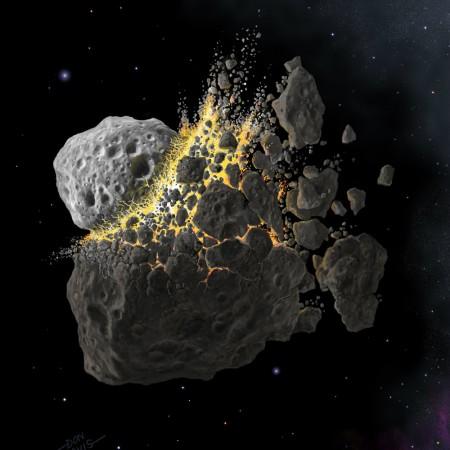
As NASA is busy developing their planetary defence weapon, a giant asteroid measuring 650 metres in diameter will whizz past Earth on September 14, 2019. This rogue space body named 2000 QW7 is apparently travelling at a speed of 23,100 kilometres per hour, and it will be flying past Earth at a safe distance of 3.3 million miles.
NASA's asteroid tracking department considers all rogue bodies passing at a distance within 92.9 million miles as near-earth objects (NEO). It means that even a small change in trajectory could elevate the vulnerability of a possible hit, and if such an event happens, a catastrophe on a global scale will be triggered.
It should be noted that several factors in space are capable of increasing the possibilities of the earth being hit by rogue space bodies like asteroids. One such factor is a gravitational keyhole. A gravitational keyhole is an area in space where rogue space bodies get affected by the gravitational pull of nearby planets, and if 2000 QW7 passes through this keyhole, this asteroid could plummet right into the Earth's surface resulting in massive devastation.
A few days back, SpaceX founder Elon Musk had claimed that humans are not capable enough to defend themselves from possible asteroid hits that may happen in the near future. The South African billionaire made these remarks on Twitter when one of his followers asked whether asteroid Apophis will hit the earth in 2029. Musk assured that earth will be hit by a doomsday asteroid one day or the other, but current human technology is not developed enough to combat these threats.
Earlier, Dr Iain McDonald, a top scientist Cardiff University's school of earth and ocean sciences had also suggested that earth will face catastrophe due to a doomsday asteroid. As per McDonald, catastrophic events like asteroid hits are not confined to the past, and it will happen in the future too.






![Ultrahuman launches Ring PRO, free charging case with more than just power and Jade AI [details]](https://data1.ibtimes.co.in/en/full/829151/ultrahuman-launches-ring-pro-free-charging-case-more-just-power-jade-ai-details.png?w=220&h=138)










